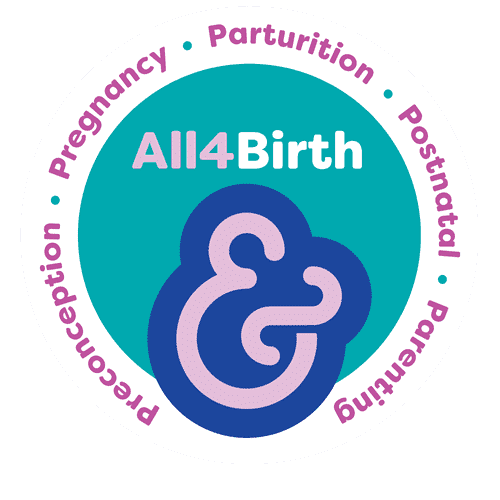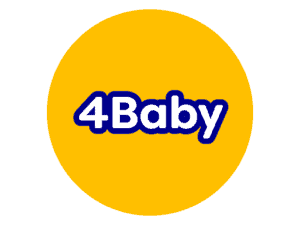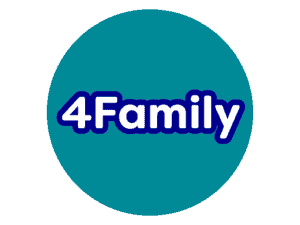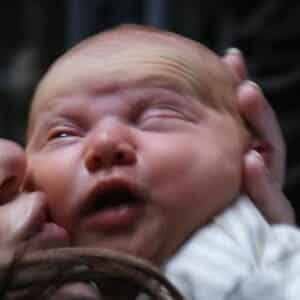Rachel’s Story
by Rachel Summers -Mother
When the government announced a lockdown in March 2020 due to COVID-19 I was 25 weeks pregnant. An initial period of 12 week ‘shielding’ and isolation for vulnerable people took me to being pretty much full term with my second baby. I thought that by the time I came to birth my baby everything would be back to ‘normal’. My first birth had been a relatively uncomplicated experience in a birth centre, although on arrival I had been told by the midwife I wasn’t in labour, I refused to go home, and was left to quietly labour with my partner. I delivered my daughter a few hours later. When I became pregnant again I was already planning a home birth, but as Covid unfolded I became sure I wanted to birth my baby at home.
Despite having a straightforward pregnancy, Covid-19 affected my maternity care in several ways, initially with a couple of my appointments being undertaken over the phone. When I did attend midwife appointments my midwife wore a mask and soon it was required for me to wear a mask too. As I was isolating these were my first experiences of interactions whilst wearing a mask, and also some of the only social interaction
 I was having beyond my immediate family. Like so many people I definitely found it all very strange. Some times were trickier, for example when navigating communication through some static fundal height measurements and declining growth scans. So much communication is lost when such a significant part of the face is covered, and as we filled out an ‘out of criteria for home birth’ form I really missed the gentle smile of compassion from my midwife who knew I wanted to avoid unnecessary hospital visits.
I was having beyond my immediate family. Like so many people I definitely found it all very strange. Some times were trickier, for example when navigating communication through some static fundal height measurements and declining growth scans. So much communication is lost when such a significant part of the face is covered, and as we filled out an ‘out of criteria for home birth’ form I really missed the gentle smile of compassion from my midwife who knew I wanted to avoid unnecessary hospital visits.
During lockdown I concentrated on creating a little birthing space in my home, preparing my body and mind for birth, and spending time outdoors with my three year old daughter. It was tricky for me to engage with how Covid was impacting maternity services across the UK and worldwide. When I did, I read stories of women giving birth alone, home birth services being stopped in many areas, and even one article describing instances recommendations for women to have epidurals to reduce the Covid risk during intubation if an emergency caesarean under general anaesthetic was required.
Trying to ignore all of this I read some inspiring books about birth and developed my birth plan with my partner and doula, the premise being to listen to and follow my body and baby. 40 weeks came and went. I had two instances of static fundal height measurements and after quite a lot of pressure from midwives, as well as being told I was ‘out of criteria’ for a homebirth I eventually agreed to attend a scan at hospital alone. Baby measured perfectly and all looked well, and I tore up the ‘out of criteria’ form I had previously signed.
A couple of days later and at almost 42 weeks pregnant I put my daughter to bed and around 9:30pm was relaxing in the bath, whilst feeling some tightening I started to wonder when do Brixton Hicks become a contraction? After losing my mucus plug over the previous two days I decided to go to bed and try and rest. I couldn’t get comfortable so headed downstairs for a warm drink.
My partner was there and we lit some candles, my affirmations were on the wall, and I put on some music. By 11pm things were feeling quite intense so I decided to call my doula. I waited through a few more contractions and eventually called her about 11:30pm. With my little team in the room and feeling fully supported I journeyed inside myself, silently feeling and breathing into each contraction. I was aware of the intensity of the contractions, but became unaware of their duration or interval. I felt I was managing well, and just kept my head down as I lent over a padded foot stool. Around 2 hours later I started to sound each contraction and we all realised my body was pushing. Things had progressed faster than I had imagined.
My baby girl was born at 2:15am on our living room floor, with not a drop of water in the birth pool! At no point did I ask for a midwife or even mention their absence. Although my doula and partner did call to update them on the contractions and again when they realised I was pushing, they arrived about 40 minutes after my daughters birth.
Perhaps it was because I felt fully supported by my partner and doula, and being confident in my body and its ability to birth my baby with no medical intervention which led to me not missing a midwives presence. During my previous labour I had been told I wasn’t in active labour by a midwife which led me to labour in a room with my partner and very few interruptions. I feel this experience subtly ingrained my confidence to birth alone, and also led me to be unfamiliar with the role of the midwife during birth, as I’d only had a midwife with me for the final hour of pushing with my first baby. 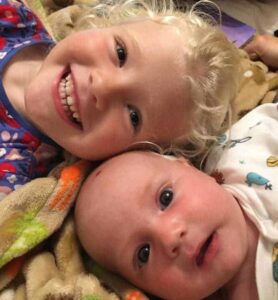
I am also aware I had detached myself from the health care services around me due to the impact of Covid-19. Homebirth services were paused in trusts not far from mine. Women were required to have vaginal examinations in order for their partners to be with them in birth centres, to then leave mother and baby just an hour after birth. I was keen to do whatever I could to birth my baby confidently with as little intervention as possible, and that’s exactly what happened, this was not a planned ‘freebirth’ but rather a birth that happened more quickly than we imagined it might.
The birth of my daughter was a magical, empowering and life changing experience. I am grateful to the two midwives who did attend to check me and my baby over. And I am forever grateful to my doula who supported me and heard my wishes.
